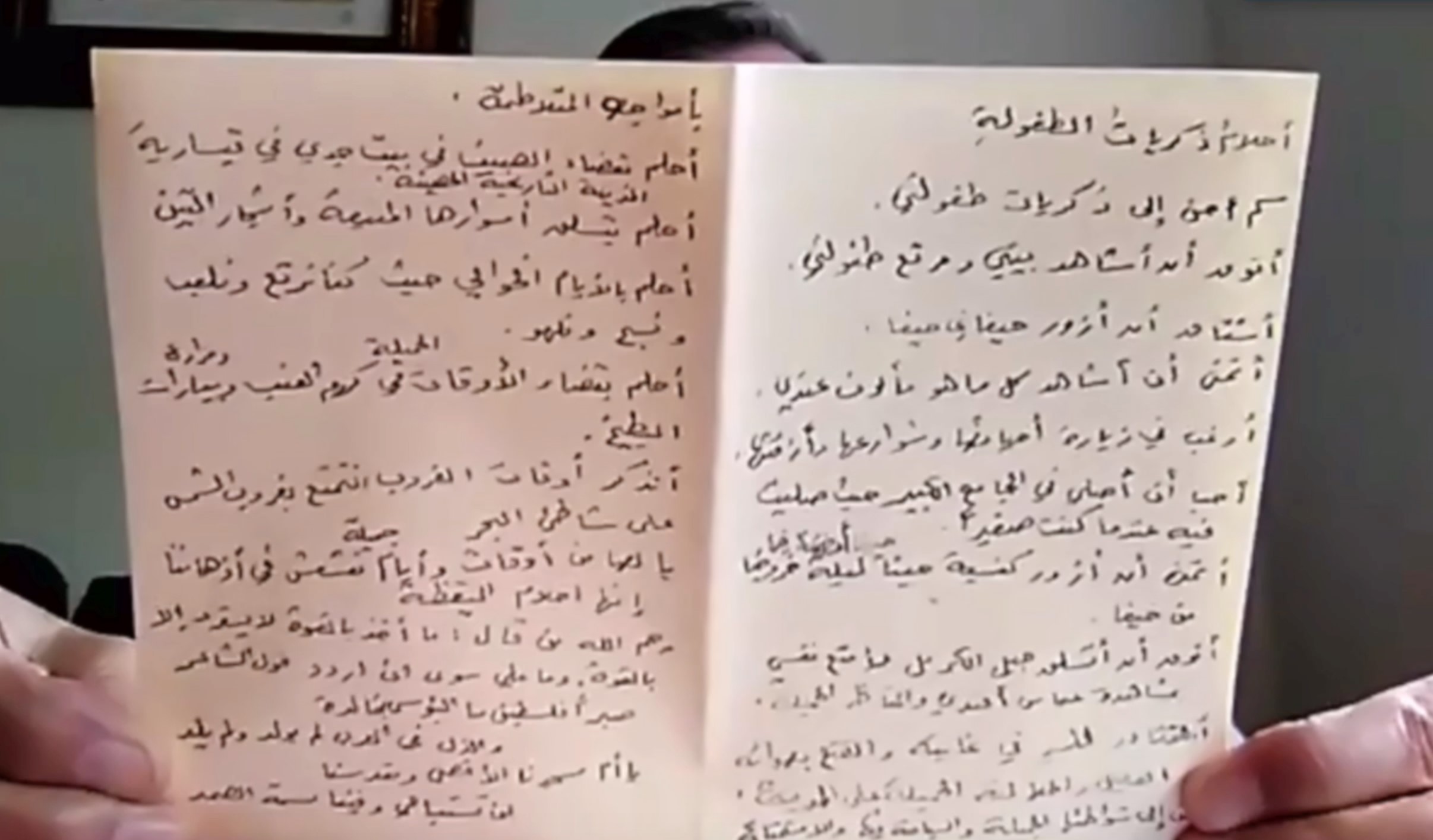#UniForReading: Refugees use poetry to reconnect with home thanks to Reading workshops
13 August 2020

Refugees in Reading are being helped to reconnect with memories of their home countries and celebrate their identities by writing poetry.
Poetry writing workshops arranged by Dr Yasmine Shamma, of the University of Reading, and Jude Haste of Reading Refugee Support Group (RRSG), have been running this summer. Participants are encouraged to write down their experiences and memories of their previous homes in a creative way in order to process their feelings and reveal more about themselves and their cultures.
Poetry written during the workshops is planned to be published as a collection in the future, and will also be ultimately showcased in a new online archive launched this week, titled Making Home Away.
Dr Shamma, a Lecturer in Modern and Contemporary Literature in the Department of English Literature at the University of Reading, has led the workshops. She said: "The refugees we work with come from all over the world, and have some incredible, and heart-breaking, stories.
"Sometimes feelings of frustration or anger come through in their writing, but poetry allows you to mentally order those kinds of feelings and make sense of the turmoil, as a form of art therapy. We offer a safe place to process their senses of displacement, and direct them to their own notebooks' pages for future processing."
Writing poetry taps into the tradition of oral history, performance, and testimony, which have taken place for centuries in many Arabic and African countries. These poems are traditionally folk testimonies with long descriptions of the landscape and their spiritual importance.
Building on this, refugees in the workshops - which are run in both English and Arabic - are instead prompted to think about the significance of their everyday actions, both in Reading and their home countries.
One African refugee wrote about coming home and smelling breakfast being cooked and was encouraged in the workshops to explore the details of the recipe's ingredients. Another Palestinian man was encouraged to swap his literal description the city of Haifa, where thousands of Palestinians were forced to leave when the city was captured by Haganah Zionist forces in 1948, for one that described his personal memories of being raised there.
Dr Shamma said: "The resulting sensory description of the breakfast recipe, with the smell of the onions and paprika cooking, revealed far more about his family's culture and provided meaning to his everyday experience by showing that ordinary details matter.
"The Haifa poem was written as a way of mourning a lost home, but it allowed the writer to go back there for a second in his mind. He hadn't been to the city since he was about 10 years old, but could remember so many small details."
The workshops are inspired by techniques taught by poet and author Kate Clanchy, a Creative Writing lecturer at the University of Reading. Her work with refugee school pupils has led to them producing award-winning published poetry and earned her an MBE in 2018. Her creative writing techniques are soon to be published in a book titled Grow your Own Poem.
Plans to publish poems by the refugees in the RRSG workshops also include incorporating them into an upcoming book by Dr Shamma, titled When We Talk About Home, which will draw on interviews she conducted with refugees in camps in Jordan and Lebanon as part of field work funded by the British Academy. There are also plans for online performances of the poetry by the refugees, in keeping with their traditions.
The poetry workshops are part of an RRSG project titled Routes to Roots, commissioned by Living Reading and Reading Culture Live, in partnership with Dr Shamma. This project aims to offer various workshops teaching different forms of creative-writing and performance as modes of expression to local refugee communities.
The Making Home Away archive is part of the Lost and Found: Testimonies of Migration, Displacement, and Resettlement project, funded by the British Academy's Tackling the UKs International Challenges grant. It was created in partnership with Co-Investigators Professors Vicki Squire, of the University of Warwick, and Professor Suzan Ilcan, of the University of Waterloo in Canada.
#UniForReading
The University of Reading is proud to be part of the town of Reading and makes a valuable contribution to the local area. We work closely with local community groups and organisations to support the wider objectives of the town.
Find out more about the ways that the University works in partnership with Reading organisations here and businesses here, and the economic and social contribution that the University makes to the Thames Valley region here.
Join in the conversation on social media using #UniForReading
